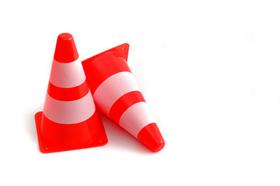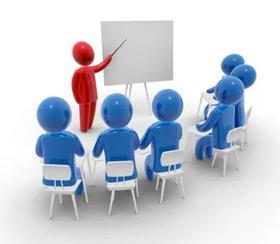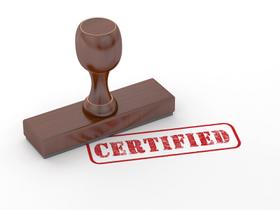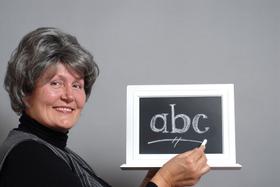Perhaps you are thinking about teaching in a private school in the future or maybe you just started teaching in a private school during the current academic year. This article is written with you in mind. If you are coming from a public school, you will find several differences between teaching in public school and teaching in a private school. The differences are even more pronounced if you take a teaching position in a boarding school. If you have never taught at all, then the following article wil raise points and issues for you to consider.
Students who want to be there
Teachers want to teach. We love our subject. We want to share it with our students. Unfortunately it can be difficult to teach when you are more concerned about maintaining order in your classroom than you are with actually teaching. When you have a large class of, say, 30 or 40 students, maintaining order is an ever-present issue. On the other hand teaching a small class of, say 12-15 students, allows you to engage your students more or less constantly. It is very difficult for students not to be engaged when the size of the class is small.
This video illustrates teaching using Harkness tables.
Students attend private school because their parents want them to get a first rate education. The admissions process can be quite rigorous involving as it does testing and interviews to determine if the student is a good fit for the school and vice-versa. As a result, you won't be dealing with children who have issues with being in school or learning for that matter. They are in school to learn, to achieve and to become all that they can be.
The other reality is that classes are generally small. 12-15 students is typical. Because the students have been carefully screened and selected, they are usually quite capable of doing serious amounts of academic work. Furthermore, because the school hired you with a degree or two in your chosen field or subject, you can run with your exploration of the subject matter. Naturally you will do it within the parameters of the school's curriculum. But be assured that your students will accomplish in a year what many students in other academic settings would take two or even three years to accomplish.
Cooperative parents
In private schools the educational process is a partnership of three entities: school, student and parent. Since the parents have made a conscious decision to send their children to private school and are spending significant amounts of money to do this, they expect to be involved. Each private school varies in the precise manner in which it communicates with parents, of course. Whether by website or emails, you will be involved and kept abreast of what is happening on a regular basis. That way you will be aware of what is going on in the school as well as how your child is progressing.
This video offers a testimonial about his child's private school.
The typical day school will have parents helping with a host of tasks and events which will make your work a lot easier and more effective. You know how much time it takes to organize even the simplest of events. In private schools you will have the help and support which you need to hold all those important events such a field trips, visits to museums and so on which enrich your teaching. Parents will also expect to meet with you regularly to discuss their children's academic progress. Expect a lot of interaction with parents in a private school.
Results-oriented
The school and the parents will expect great things from you. If you don't deliver, your contract will not be renewed. And there will be no recourse to a union when that happens. Simply put: you chose to teach because you love your subject and you enjoy teaching it to others. Keep the fires of passion for your subject well-fanned and make sure all concerned are turned on by how you teach and what you teach.
Always be flexible and attuned to new ideas and methods of presenting your subject material. The use of handheld devices is just one example of how teaching has been transformed. As in any endeavor, being complacent and ignoring what is going on in your subject area and profession will diminish your effectiveness. Participate in forums. Write blogs. Attend conventions. Your school will support you in your quest for professional growth. After all it will bathe in your reflected glory, won't it? I don't know of a head of school who wouldn't be ever so proud to mention at assembly or in his newsletter that you were a presenter at a philological conference in Geneva over the summer. Or that you are a rater for ETS. Whatever your professional accomplishments are, they will make a difference. They will add luster to both your resume and your reputation.
Teaching in a private school offers you an opportunity which could well turn out to be your life's work. That is so unusual in this age of constant job changing. Find a school which appreciates you. Then do what you love doing: teaching young people. Chances are that you will be there until you retire.
No unions or bureaucracy
Public school teachers are unionized as a rule. This has its good points and its bad points depending on who you ask. Private school teachers are not unionized. As a result, you will need to be flexible and adaptable. Basically your job is whatever the school determines it to be depending on the exigencies of the moment and the day. One important consideration, however: if you are accustomed to telling an administrator "That's not my job." then perhaps you ought to look elsewhere for a teaching job. In a private school, flexibility is critical. Everybody pitches in to get whatever needs to be done accomplished. A positive "can do!" attitude is both an asset and a requirement for teaching in private school.
This video gives us a glimpse of life in a Montessori classroom.
Another difference between teaching in public and private schools is that you won't have to deal with layers of bureaucracy to get simple things done. Private schools are generally small, close-knit communities where everybody knows everybody. Getting something fixed or some supplies replenished is not ordinarily a big deal. Floating a new idea and bringing that idea to fruition is generally easier in a smaller school setting simply because there are not so many people to convince.
Conclusion
Teaching is demanding hard work. My take on the difference between teaching in a public school and a private school is that you will get more teaching done in a private school. That was my experience. My experience, of course, has influenced my opinions about the subject. There are some public schools where teachers are given the small class sizes and the tools and support which they need to do their job. There are also some private schools which have large classes and little support for their teachers. Be aware. Explore. Ask questions. Don't give up looking for a teaching position which will be a perfect fit for your requirements. It is out there.
Questions? Contact us on Facebook via Twitter. @privateschoolreview






























































